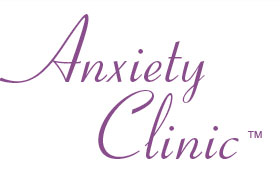Symptoms Of Postnatal Depression
Do You Have The Symptoms Of Postnatal Depression?
Symptoms of postnatal depression can vary from person to person. However, in truth there are actually two sets of postnatal depression symptoms to look out for. The first are what's known as the 'key symptoms of postnatal depression'. These are the symptoms which make up the foundation of the condition and are most common in sufferers. Then there's the 'other symptoms' of postnatal depression. This set of postnatal depression symptoms is larger, more varied and may or may not be present in your case.
Take some time to read through both sets of symptoms to assess how affected you are by postnatal depression. In the final section on this page we'll discuss your recovery options and help you decide the best way forward for you and your baby.
Key Symptoms Of Postnatal Depression...

Here is a list of the 'Key Symptoms' of postnatal depression:
- Ongoing sadness or feeling low.
- A loss of interest in life and the things you used to enjoy.
- Feeling tired or worn out.
In order to receive a formal diagnosis as having postnatal depression you would need to experience all of the above three symptoms for at least two weeks.
If a person has not suffered with all three of the above symptoms for at least two weeks, they may well have the lesser 'baby blues' or have some other underlying problem. However assuming you do satisfy all three requirements, let's now consider the wider range of postnatal depression symptoms which could be affecting you. Be honest with your answers and consider how you've been over the last week or more, rather than simply how you feel today. This gives a more accurate assessment of how the symptoms of postnatal depression are affecting you.
Other Symptoms Of Postnatal Depression...

Here is a list containing 'Other Symptoms' of postnatal depression. Make a mental note of which apply to you and remember that you don't have to experience all of these symptoms in order to have postnatal depression:
- Difficulties with concentration and focus.
- Difficulties in making decisions.
- Not feeling good enough as a mum.
- Criticising yourself for any mistake.
- Feeling guilty.
- Worrying about minor things.
- Feeling anxious.
- Low self-confidence.
- Feelings of worthlessness.
- Feeling restless or agitated.
- Changes in appetite or sleep patterns.
- Intrusive unpleasant thoughts.
- Wanting to somehow escape.
- Thoughts about harming yourself or your baby.
- Thoughts about suicide.
So how did you do? Were you surprised by how many of these symptoms you could relate to?
The problem many postnatal depression sufferers have is that they don't realise just how serious their condition has become. With all the pressure of raising a baby the symptoms often creep up on you and it's only when you take time to go through a list like this, that you realise right here and now just how much you need some specialised help.
Many sufferers bury their heads in the sand, hope that things will quickly change on their own and everything will be ok. However, in reality postnatal depression can last for well in excess of a year so rationally speaking hoping it'll go away on its own is quite a gamble. As a parent we're sure you want to be everything you can for your baby but if you're suffering with postnatal depression, struggling with your focus, emotions and decision making ability - is that really a gamble you want to take?
How To Recover From The Symptoms Of Postnatal Depression...

Most sufferers of postnatal depression go to their GP for help... and most seem to leave with a prescription for anti-depressants. This by itself is NOT a solution to your problem particularly if you breast-feed as you will be passing the drugs onto your baby through your milk. The only reason medication is so readily offered for postnatal depression is because it's convenient for the GP - NOT because it is a good way to address your condition.
The best way for you to recover from postnatal depression is through a specialised form of Cognitive Behavioural Therapy (CBT). Not only is this far safer than drugs for both you and your baby, it also addresses the underlying cause of the postnatal depression. You can find far more detailed information on the dangers of medication and the benefits of CBT on our postnatal depression treatment page.
If you're serious about recovery and being the best parent you can be - we'd love to work with you. We are a private Clinic so you need to pay for your treatment, but in truth our fees are affordable for the vast majority of people. If you live in Stoke on Trent our Face To Face Sessions at our established Clinic are fixed rate at £95,00 for a 90 minute Consultation. If you don't live in our region and can't get to work with us face to face, we can work with you via phone or webcam (Skype) where our fees are just £69.00 for a 60 minute session.
Choose from the following links to find out about how we work, our no quibble zero-risk financial guarantee and how we can start working with you in as little as two or three days. You can have your life back and be a great parent - but you need to do something about your postnatal depression right now!
I'd like more information on a Face To Face Consultation at the Clinic (Stoke on Trent)
I'd like more information on an Online / Telephone Consultation (Nationwide UK)




